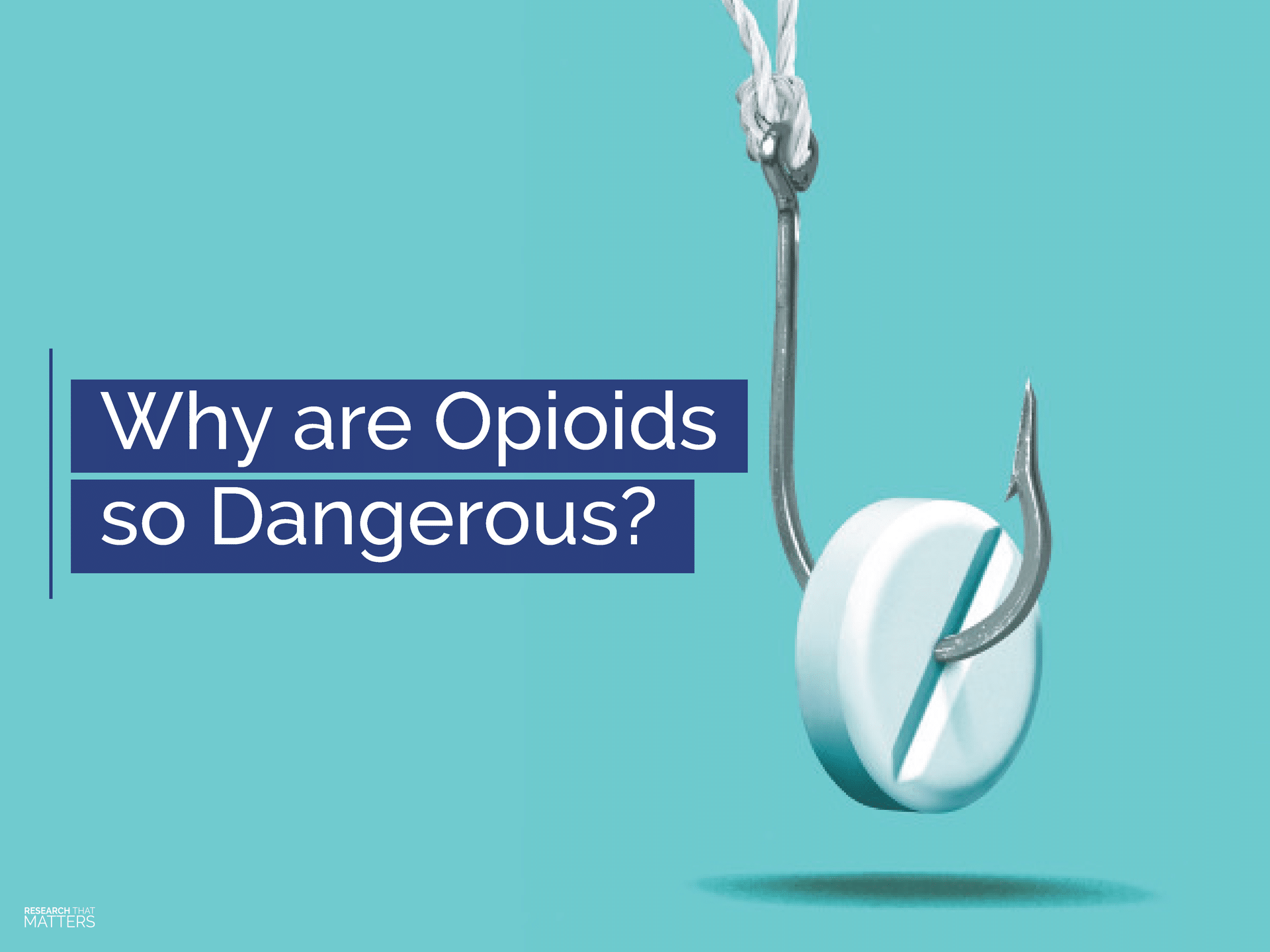Why are Opioids so Dangerous?

It’s estimated that over 200 million opioid prescriptions are written each year. This use and abuse has led to an epidemic that’s been fueled by chronic pain. Opioids temporarily hide pain by attaching to receptors in the brain and boosting feelings of pleasure. Unfortunately, they do nothing to stimulate healing, leading to a pattern of pain, medications, and more pain. The good news is that there is a better way to find relief.
Opioids are in the same family of drugs as heroin, and some opioid medications are thought to be even more addictive. The temporary relief that they offer comes at a steep price. In lower doses, opioids can cause drowsiness or dizziness. Higher doses can cause your breathing and heart rate to slow down to dangerous levels. But the most dangerous aspect of opioids is the addiction rate of up to 30%.
- Opioids bind to the receptions in your nervous system that block pain and produce intense euphoria
- Tolerance to opioids can build in just a few short days
- Withdrawal symptoms are severe and can lead to addiction
Finding Relief Without Opioids
There is no question that opioids are powerful painkillers. The problem is they are also highly addictive and don’t actually fix the cause of your pain. But, if you’re struggling with chronic pain, you may be curious about your best care options. How can you fix the cause of your pain, find lasting relief, and avoid these harmful medications?
You may be surprised to discover that people who saw a chiropractor for spine pain had half the risk of filling an opioid prescription than those who didn’t. It’s not just that chiropractors don’t prescribe these dangerous medications. As time passed, most people were not likely to fill an opioid prescription at all. That indicates the care provided by chiropractors helped people find enough relief that they no longer sought medications to find relief!
- Choosing chiropractic for spinal pain can reduce your risk of filling an opioid prescription by over 50%
- Masking spine pain with medications can possibly increase your risk of further injury
- Movement-based care helps your body heal and can improve your likelihood of finding long-term relief
Exposing the Truth Behind Opioids
The truth will set you free. While much of the information about the opioid epidemic is shocking, it’s important to understand how we got here. For example, when we first learned that 35 billion opioids (half of all the distributed pills) were handled by about 15% of pharmacies, it became clear that there was a network of “pill mills” that weren’t concerned about helping people actually find relief from their chronic pain.
Chronic pain is a real issue for tens of millions of people each day. In many cases, the answer isn’t found in a pill but rather with a combination of movement-based treatments. Your body heals through motion. Taking medications may provide temporary relief, but they don’t address the cause of your pain. Nearly everyone who takes opioids for an extended time becomes dependent. We think it’s a smart idea to avoid the risks.
- In 2016, over 91 million people used prescription opioids – The rates of emergency department visits involving opioids more than tripled from 1999 to 2013
- Over 16 million people currently suffer from an opioid use disorder
Taking a Stand Against Opioids
About 30 years ago, medicine had a shift in how they thought pain should be addressed. “Pain is a 5th vital sign” became a rallying cry, and new medications were created to block pain…at all costs. They now know that these medications created a never-before-seen healthcare epidemic. To begin with, the drugs weren’t very good at addressing chronic pain, and they require larger and larger doses to achieve an effect over time.
Taking a stand against opioids starts with our ability to help people find relief from chronic pain. Nearly all of our primary healthcare organizations have now advocated for a non-drug approach to care. And the data is clear- people are looking for solutions for chronic pain that extend beyond a prescription.
- The Centers for Disease Control (FDA), Food and Drug Administration (FDA), and others have recommended a non-pharmacological approach to chronic pain should be the first line of treatment
- Over 40% of blogs relating to opioids are focused on people trying to find solutions “beyond the pill”
- Together, we can end the opioid crisis by breaking the cycle of chronic pain with natural and effective healthcare choices
Chronic pain is described as biopsychosocial, which means that it’s complex and has many dimensions. Creating personalized care, goal-oriented, and coordinated care plans are critical and exactly why our practice begins each patient with a complete and thorough evaluation. Our evaluation helps us understand your history, goals, and challenges. From there, we can create a comprehensive plan of care that enables you to find long-term relief from chronic pain.
Science Source:
What are opioids and why are they dangerous? Mayo Clinic. 2018
Impact of Chiropractic Care on Use of Prescription Opioids in Patients with Spinal Pain. 2020
Opioid Addiction. Stat Pearls. 2021
Healing the Unmet Needs of Patients Suffering from Chronic Pain. 2019